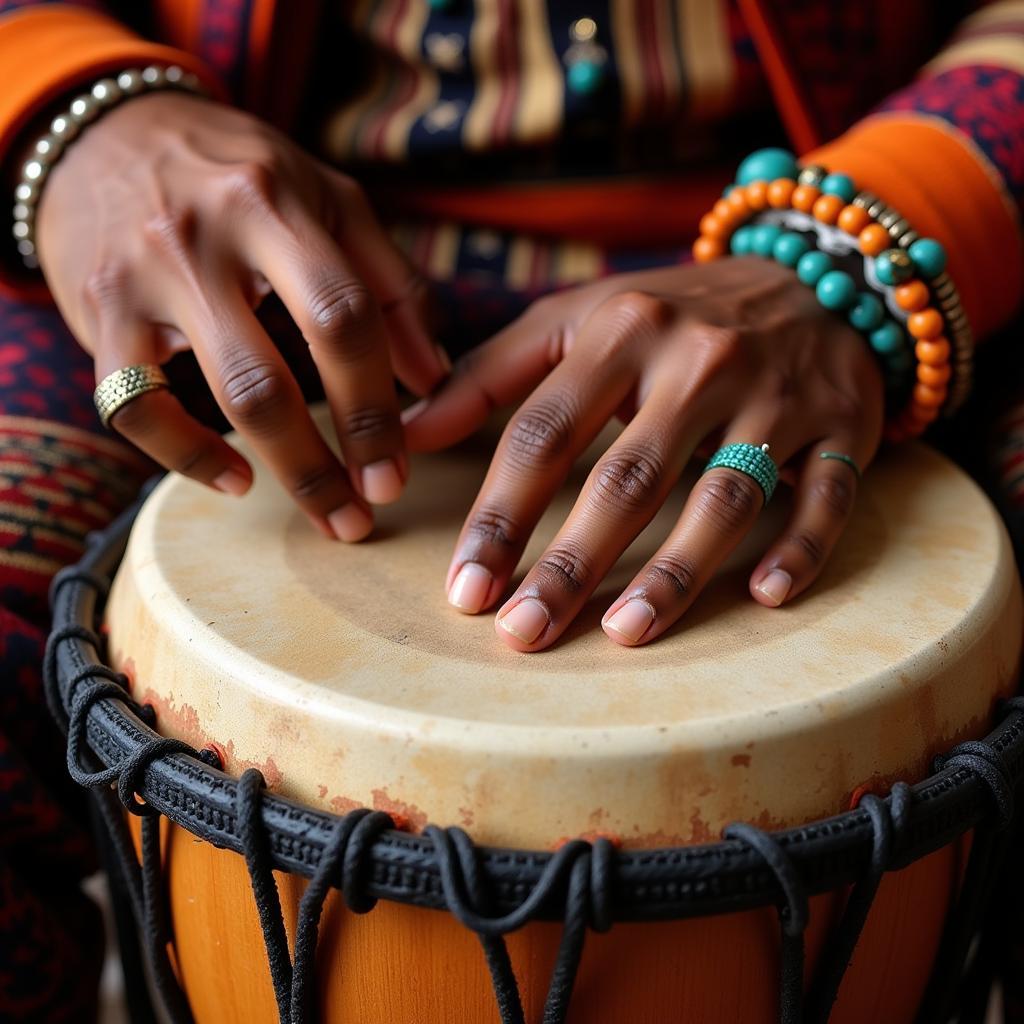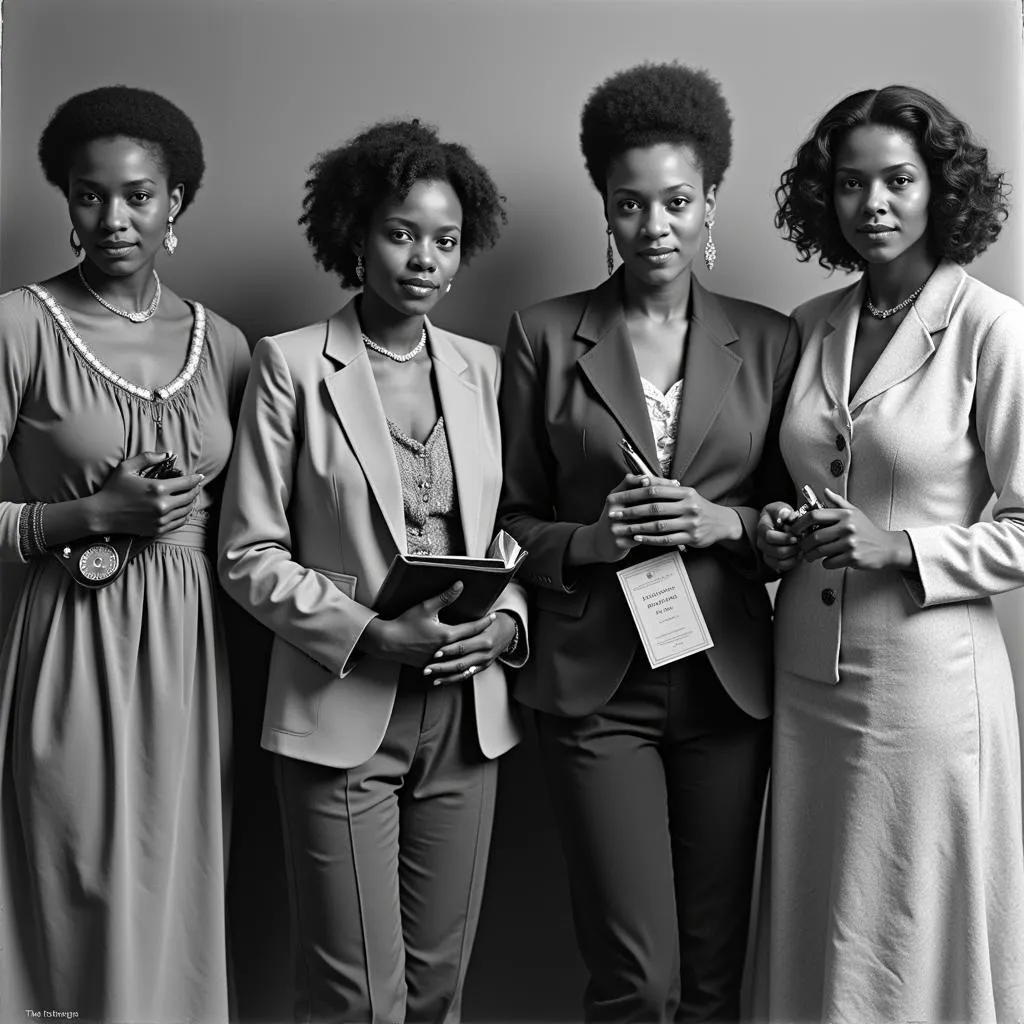African American Supreme Court Cases: Milestones in the Fight for Equality
The history of African Americans’ struggle for civil rights is deeply intertwined with the Supreme Court. “African American Supreme Court Cases” represents a quest for understanding the legal battles that have shaped the landscape of racial equality in the United States. From landmark victories to devastating setbacks, these cases provide a compelling narrative of the ongoing fight for justice and equality.
A Legacy of Discrimination: Setting the Stage for Legal Battles
Before delving into specific cases, it’s essential to grasp the historical context. For centuries, African Americans faced systemic discrimination enshrined in law and enforced through social customs. Slavery, Jim Crow laws, and pervasive segregation created a society where Black Americans were denied fundamental rights. The Supreme Court, tasked with interpreting the Constitution, played a pivotal role in upholding or dismantling this discriminatory system.
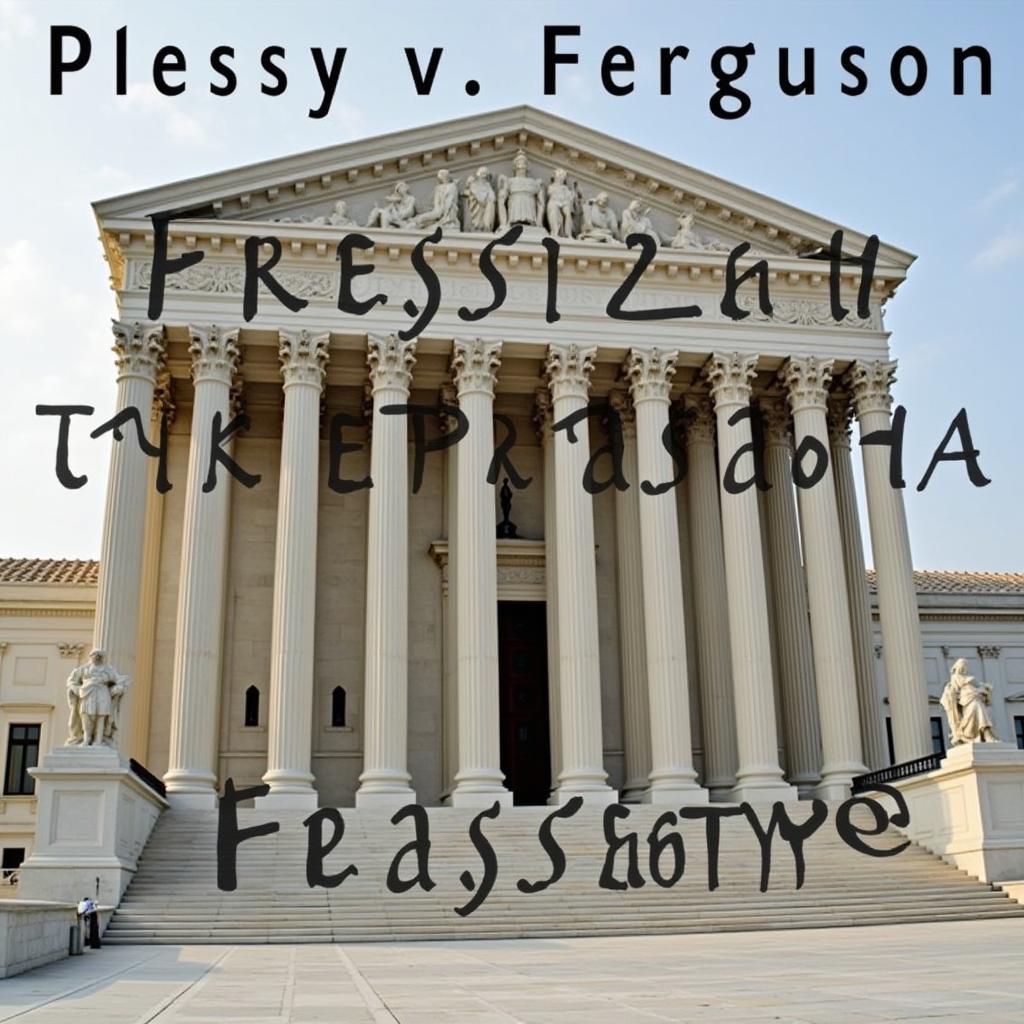 Plessy v. Ferguson Supreme Court Case
Plessy v. Ferguson Supreme Court Case
Separate But Equal: Plessy v. Ferguson (1896)
One of the most infamous Supreme Court decisions, Plessy v. Ferguson, solidified the “separate but equal” doctrine. This ruling permitted racial segregation in public facilities, claiming that separate accommodations did not violate the Fourteenth Amendment’s equal protection clause. This decision cast a long shadow over the country, legitimizing segregation for decades.
A Glimmer of Hope: Brown v. Board of Education (1954)
The landmark case of Brown v. Board of Education marked a turning point in the fight for racial equality. The Court unanimously declared state-sponsored segregation in public schools unconstitutional, overturning the precedent set by Plessy v. Ferguson. This decision struck a blow against the heart of segregation, paving the way for desegregation efforts across the nation.
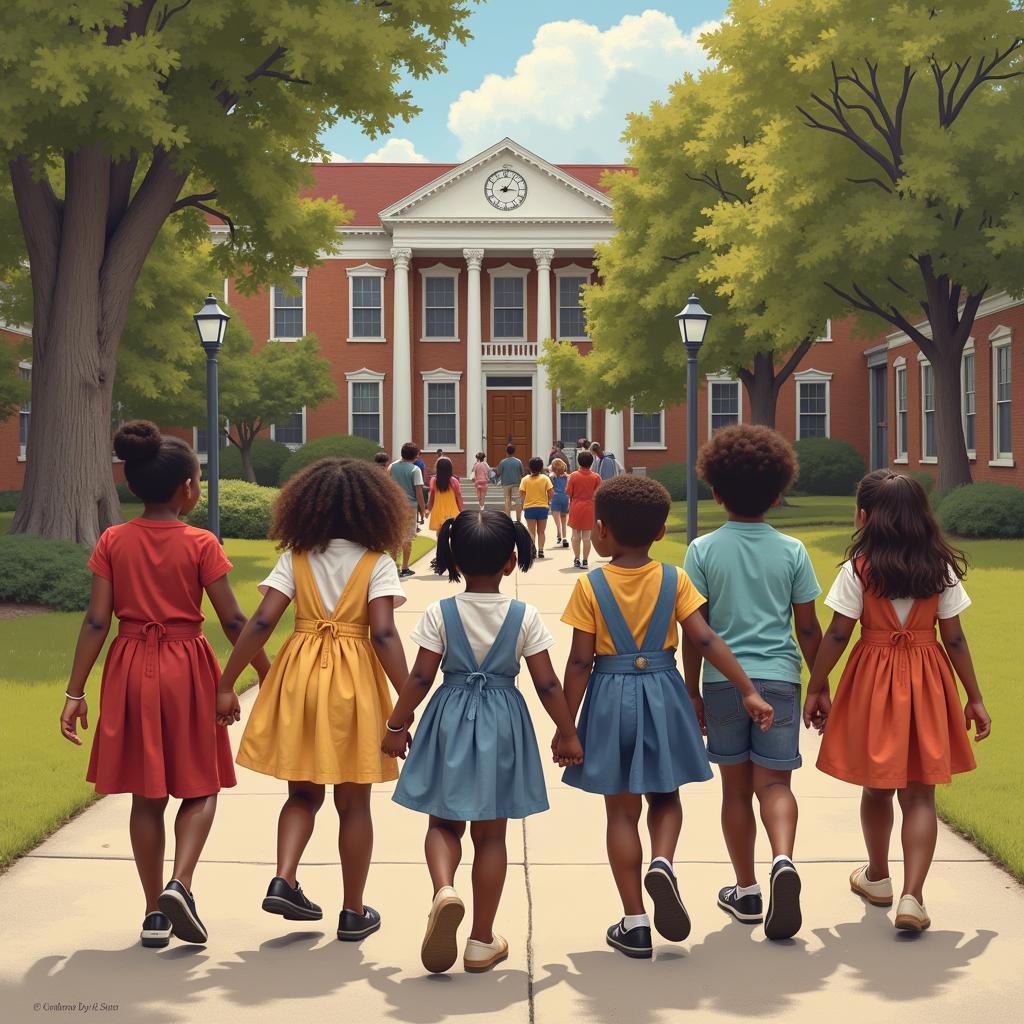 Brown v. Board of Education Supreme Court Decision
Brown v. Board of Education Supreme Court Decision
Beyond Education: Expanding the Scope of Civil Rights
The Brown decision set off a wave of legal challenges to segregation in other areas of American life. Cases like Loving v. Virginia (1967), which struck down laws prohibiting interracial marriage, and Heart of Atlanta Motel, Inc. v. United States (1964), which upheld the Civil Rights Act of 1964, expanded the legal protections afforded to African Americans.
Affirmative Action: A Contested Remedy
In the wake of widespread discrimination, affirmative action policies emerged as a means to address historical inequalities. These policies, designed to provide equal opportunities for minorities in education and employment, have been the subject of numerous Supreme Court cases, with decisions often reflecting the Court’s shifting stance on race-conscious remedies.
Voting Rights: A Constant Struggle
The right to vote is a cornerstone of democracy, yet African Americans have faced persistent obstacles to exercising this right. From literacy tests and poll taxes to gerrymandering and voter ID laws, efforts to disenfranchise Black voters have been a constant threat. The Supreme Court has played a critical role in upholding or striking down measures that impact voting rights.
Criminal Justice: Addressing Racial Disparities
The criminal justice system has been plagued by racial disparities, with African Americans disproportionately represented at every stage, from arrest to sentencing. Supreme Court cases have addressed issues such as racial bias in jury selection, police brutality, and sentencing guidelines, often with mixed results.
The Fight Continues: Contemporary Challenges
The quest for racial justice is ongoing. The Supreme Court continues to grapple with cases involving racial profiling, police use of force, and affirmative action. These contemporary challenges highlight the enduring legacy of discrimination and the ongoing need for legal protections.
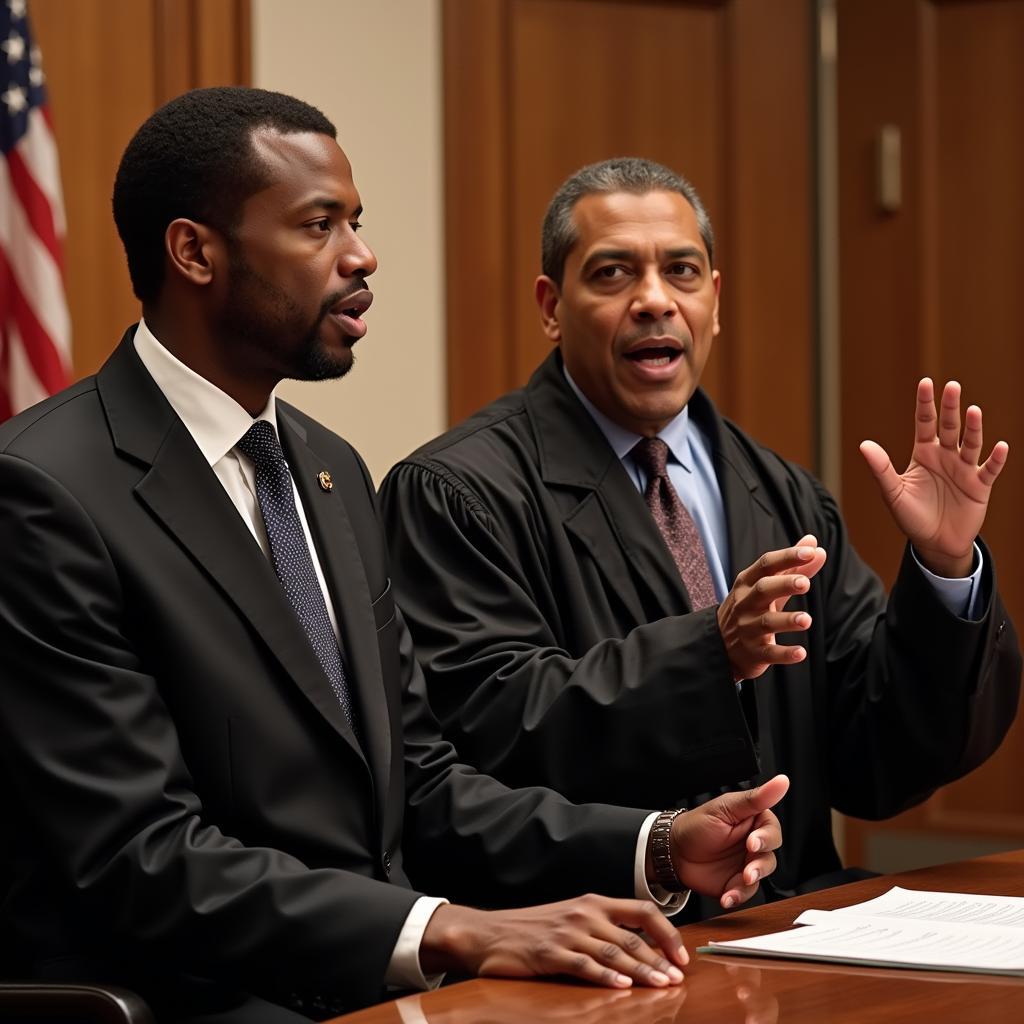 African American Lawyers Arguing a Case in Court
African American Lawyers Arguing a Case in Court
Conclusion
African American Supreme Court cases offer a poignant and often sobering glimpse into the nation’s ongoing struggle with race and equality. These cases are not merely historical artifacts; they are reminders of the power of the law to uphold or dismantle discriminatory systems. As the fight for justice continues, understanding these landmark cases provides crucial context for addressing contemporary challenges and ensuring equal rights for all.
FAQ
- What was the significance of the Plessy v. Ferguson case? This case established the “separate but equal” doctrine, which legitimized segregation for decades.
- How did Brown v. Board of Education impact education in the United States? It declared state-sponsored segregation in public schools unconstitutional, paving the way for desegregation.
- Why are voting rights cases important for African Americans? These cases address persistent efforts to disenfranchise Black voters and protect the fundamental right to vote.
- What are some contemporary issues facing the Supreme Court related to race? Current issues include racial profiling, police brutality, and the future of affirmative action.
- Where can I learn more about specific African American Supreme Court cases? Numerous online resources, books, and academic journals provide detailed information about these cases.
We invite you to delve deeper into these and other pivotal cases that illuminate the ongoing struggle for racial justice in the United States.
Need assistance or have more questions? Don’t hesitate to contact us!
Phone Number: +255768904061
Email: [email protected]
Address: Mbarali DC Mawindi, Kangaga, Tanzania
Our dedicated customer support team is available 24/7 to assist you.
